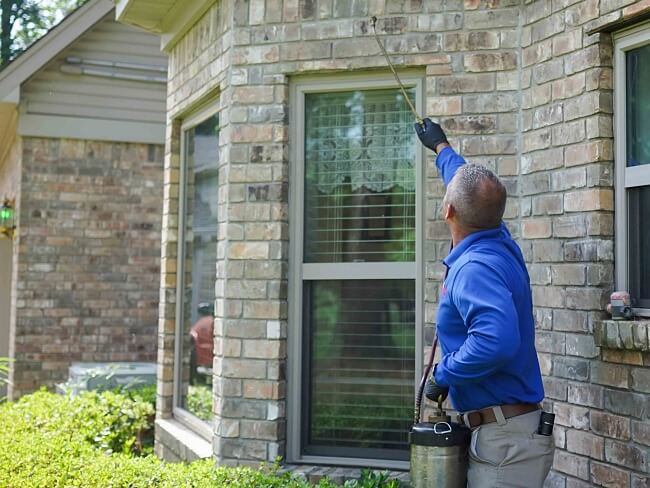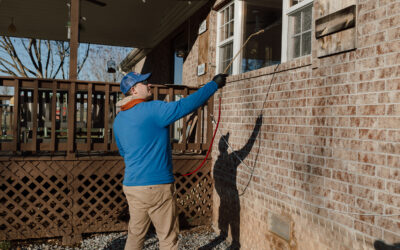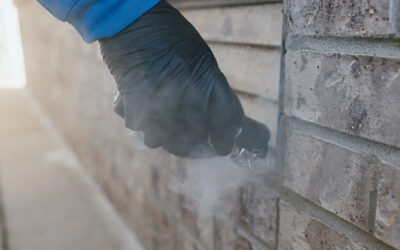
Why Regular Pest Inspections Are Essential for a Healthy Home
Keeping your home healthy and safe requires more than just regular cleaning and maintenance – it also includes pest inspections. Regular pest inspections are a critical part of pest control, as they help identify potential infestations before they become major problems. Pests like termites, rodents, and cockroaches not only damage your property but can also pose health risks to your family. By scheduling routine inspections, you can protect your home, save money on costly repairs, and maintain a pest-free environment. This blog explains why regular pest inspections are essential and how they contribute to a healthy home.
What Is a Pest Inspection?
A pest inspection involves a professional evaluation of your home to identify signs of pest activity, potential entry points, and areas vulnerable to infestations. Trained pest control experts thoroughly check both the interior and exterior of your property, including basements, attics, crawl spaces, and gardens.
These inspections aim to:
- Detect infestations early.
- Assess structural vulnerabilities.
- Recommend treatment or prevention strategies.
Regular inspections are an investment in your home’s health, ensuring peace of mind for homeowners.
Why Pests Are More Dangerous Than You Think
While pests are often seen as a nuisance, they can create significant problems that go beyond inconvenience. Understanding the risks pests pose can highlight the importance of regular inspections.
Structural Damage
Termites and carpenter ants silently eat away at the wooden structures of your home, weakening foundations, walls, and floors. Left unchecked, these pests can cause thousands of dollars in damage that could have been avoided with early detection.
Health Hazards
Pests carry diseases, bacteria, and allergens that can impact your family’s health. For example:
- Rodents: Spread diseases like Salmonella and Hantavirus through droppings and urine.
- Cockroaches: Trigger asthma and allergies, especially in children.
- Mosquitoes: Transmit illnesses like West Nile virus and Zika virus. Routine inspections help minimize these risks by keeping your home pest-free.
Infestations Spread Quickly
Many pests reproduce rapidly, turning a small problem into a widespread infestation in just a few weeks. For instance, a single mouse can produce up to 60 offspring in one year, while termites can build massive colonies that number in the hundreds of thousands. Catching infestations early through inspections can save you from exponential growth and increased control costs.
How Regular Pest Inspections Save You Money
Investing in regular pest inspections may seem like an additional expense, but it’s far more economical than dealing with a full-blown infestation or structural repairs. Here’s how inspections save you money:
- Prevention is cheaper than treatment: It’s easier (and less costly) to treat a minor issue than to eliminate a large infestation. Early detection also prevents expensive repairs from pest-related damage.
- Avoids health-related costs: Addressing pests like rodents and cockroaches early helps avoid medical bills related to pest-borne illnesses or allergies.
- Increase energy efficiency: Pests can damage insulation, wiring, and HVAC systems, causing higher energy bills. Regular inspections help keep your home functioning efficiently.
When Should You Schedule Pest Inspections?
Determining the right schedule for pest inspections depends on several factors, such as your location, the age of your home, and your history with pests. Consider the following recommendations:
- Annual Inspections: Most homes benefit from yearly inspections, even if there are no visible signs of pests.
- Bi-annual Inspections: High-risk areas with a history of termites, ants, or other infestations may need inspections every six months.
- Seasonal Inspections: Schedule inspections at the start of each season to address pests that are active during specific times of the year, such as rodents in winter or mosquitoes in summer.
Homes in pest-prone regions, like Arkansas and Oklahoma, should consult a professional pest control company to create a custom inspection schedule.
What to Expect During a Pest Inspection
A professional pest inspection is a thorough process designed to uncover current infestations and prevent future issues. Here’s what typically happens during an inspection:
- Exterior Inspection: The inspector examines the exterior of your home, including the foundation, roof, and garden, for signs of pest activity and entry points.
- Interior Inspection: Areas like attics, basements, and crawl spaces are inspected for droppings, nests, and other signs of pests.
- Moisture Detection: Excess moisture attracts pests like termites and mold-loving insects. The inspector identifies problem areas where moisture may be an issue.
- Damage Assessment: Structural damage from termites or carpenter ants is documented.
- Customized Treatment Plan: If pests are detected, the inspector will recommend a treatment and prevention plan tailored to your home’s needs.
DIY Pest Control vs. Professional Inspections
While DIY pest control methods can be effective for minor issues, they are no substitute for professional inspections. Here’s why:
- Expertise Matters: Pest control professionals have the training to identify hidden signs of infestations that the average homeowner might overlook.
- Long-Term Solutions: Professionals provide treatments that address the root of the problem, not just the symptoms.
- Safer Methods: DIY methods can be hazardous if not used correctly. Professionals use safe, regulated products and techniques.
While DIY methods are helpful for maintenance, professional inspections ensure thorough pest control and prevention.
FAQs About Regular Pest Inspections
Why are inspections necessary if I don’t see pests?
Many pests, like termites and rodents, remain hidden until the damage becomes severe. Regular inspections catch these problems before they escalate.
How long does a pest inspection take?
Most inspections take between one and two hours, depending on the size of your home and the level of infestation.
Can I combine inspections with lawn care?
Yes! Professional pest control companies often offer lawn care services that prevent pests like mosquitoes and ticks from thriving in your yard.
Final Thoughts: The Key to a Pest-Free Home
Regular pest inspections are not just a precaution – they are an essential investment in maintaining a safe, healthy, and comfortable home. By catching infestations early, you can avoid costly repairs, protect your family’s health, and enjoy peace of mind.
West Termite & Pest specializes in pest control, termite control, and lawn care services across Arkansas and Oklahoma. Our experienced professionals provide thorough inspections and customized treatment plans to keep your home pest-free year-round. Contact us today for a free consultation and protect your home from unwanted invaders.
Call your local West Termite location or fill out the form
on our contact page to schedule your inspection today!
More posts from West Termite, Pest & Lawn
Pestproofing Entry Points Before Spring
As spring approaches in Arkansas, homeowners face an increased risk of pests seeking warmth, food, and shelter. Many infestations begin with small, unnoticed entry points that allow insects, rodents, and other pests to move indoors. Pestproofing your home before the...
Early Spring Termite Activity in Arkansas
As Arkansas begins to warm in early spring, homeowners may assume termites remain dormant until the summer months. In reality, spring termite colonies can become active much earlier, especially as soil temperatures rise and moisture levels increase. Subterranean and...
Preparing Your Home for Early Spring Pests
As winter fades and temperatures rise in Arkansas, homes become vulnerable to a fresh wave of early spring pests. Early spring is a critical time to take preventive action because insects, rodents, and other pests start emerging from dormancy, seeking food, warmth,...



